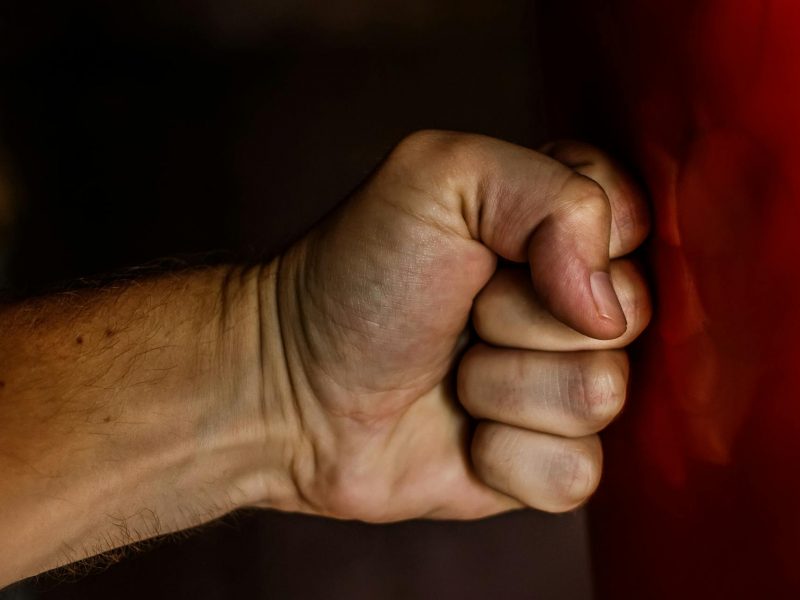
08 Feb DEALING WITH THE MEDIA
DEALING WITH THE MEDIA
The loss of a child through violent crime, such as a murder case, is inherently newsworthy and will therefore often be reported by the media.
The media undoubtedly play a crucial role in covering trials and bringing important matters to the public’s attention, being their ‘eyes and ears’, and you may well want to share your story with the media as part of your healing journey, to raise awareness of the crime, to assist the police with catching those responsible, or for any other purpose such as fundraising.
Even so. you may well find the attention of journalists to be intrusive and emotionally taxing, especially when you still coming to terms with your loss.

If you find yourself in the situation then this guide will hopefully provide some simple and practical advice on how best to handle the media, protecting your right to privacy and peace of mind.
Establish Boundaries
It’s important to establish clear and firm boundaries with the media from the outset. If you are not comfortable, or feel unable, to address the media then designate a family spokesperson or liaison who can communicate with journalists on behalf of the family. This person should be well-informed about the case and able to convey information in a calm and collected manner.
Additionally, consider working with the police through a family liaison officer, a victim support officer, or your legal representatives, to release a joint statement that communicates your desire for privacy and respect during this difficult time. Specify what information is off-limits and ask for the media’s cooperation in adhering to these guidelines.
It’s important to remember that there are certain restrictions on what the media can report concerning crimes involving children. Try your best to understand these restrictions so that if you do decide to speak to the media, even if you believe that it’s ‘off the record’ (i.e., not to be reported), you are very careful in what you say.
Maintain Dignity and Control
As a trial unfolds, media attention is likely to intensify. This can put you under a lot of pressure but it’s crucial to try and maintain your dignity and control over the narrative. Avoid engaging in speculative discussions or providing sensationalised details that may be misinterpreted.
Stick to the facts and share information that has already been made public or is part of the official court proceedings. This helps in preventing the spread of misinformation and ensures that your family’s message remains consistent and reliable. It also prevents the risk of compromising the trial, which could lead to a judge viewing it as impossible for the accused to receive a fair trial and stop the proceedings.
If the media approaches you outside the courtroom, consider having a prepared statement that acknowledges the difficulty of the situation and reiterates your family’s request for privacy. Refrain from making impulsive or emotional statements as these can be taken out of context, and once it’s been said, it’s virtually impossible to take it back or prevent it being reported by the media and brought to the public’s attention.
After the Trial: Reflect and Consider a Media Strategy
Once the trial concludes, you may face a renewed wave of media interest. Take some time to reflect on the trial and its impact on your family before deciding on any media engagement.
If your family is open to it, crafting a carefully thought-out statement expressing gratitude for support and acknowledging the legal process can help provide closure.
This is also an opportunity to advocate for justice and remembrance of your loved one. Consider using the media as a platform to raise awareness about issues related to the case, such as the importance of justice, support for victims’ families, or broader social issues. This can be a way to turn a tragic situation into an opportunity for positive change.
Engaging with the media for advocacy purposes allows a victim’s family to control the narrative and focus on meaningful messages rather than becoming passive recipients of coverage.
Seek Professional Assistance
Handling the media can be challenging, and seeking professional assistance can be invaluable. Public relations experts or communication consultants can provide guidance on managing media interactions, ensuring that your voice is heard while maintaining sensitivity to the emotional toll of the situation.
Dealing With Press Intrusions
Media attention, especially during high-profile cases, can become very intense and this may have a big impact on your life, adding additional pressure when you are already trying to cope with grief and trauma.
In the first instance, you can try to speak to the journalist directly, ensuring at the outset to state clearly that the conversation is off the record, to ask them to stop contacting you.
If the intrusion continues, you can look to stop it by complaining to media regulatory bodies. In the UK, for example, you can report a newspaper or magazine that you feel has crossed the line to the Independent Press Standards Organisation (IPSO). IPSO can issue what is called a ‘desist notice’, which asks newspaper and magazine editors to back off and leave you alone.
When dealing with intrusions by broadcast media in the UK, for example a specific television or radio programme, you can complain both to the station and Ofcom (The Office of Communications). Unlike with IPSO, however, the decision to stop a journalist or producer harassing you resides with the broadcaster, not with Ofcom.
Dealing with the media in such traumatic circumstances is undoubtedly challenging but by establishing boundaries, maintaining control, and considering a strategic approach, you can navigate this challenging terrain with more ease and use the media as a platform for advocacy, helping create a positive impact from a tragic situation.
Murder and Media – A Personal Story
As humans, we often worry about things that may never happen, yet the most impactful events can catch us off guard. This reality struck hard when we tragically lost Maximo and Octavia.
Aside from personal grief, I swiftly assessed our approach to dealing with the media. Finding scant guidance available, I hope sharing our experience can assist others in similar circumstances.
Personally, it was crucial that Julia could recover with privacy and that Cesar could grow up without the weight of being a public victim of such a heinous crime.
Given my background in media, I acted promptly to mitigate potential negative impacts on our family from media exposure and its lasting effects.
Many crimes against children occur in seclusion, with no witnesses. In our case, two deceased children and two potential suspects — an enclosed mother with her children and a father who fled, attempting self-harm.
Providing the media with an authentic victim’s perspective is vital to advocating for justice.
In our case, the accused’s family in Spain initially denied the possibility of their son committing such a horrific act. Thankfully, the police released sufficient information for the public to identify the culprit.
The accurate version of events was disseminated by the press, sparing us the need to engage directly with the media.
In the days and weeks following, the press approached us for personal interviews, which we declined to protect our privacy.
Although we prepared a statement through a PR agency requesting privacy, we never had to release it. We appreciate the media’s respectful distance, allowing us to heal without undue pressure.
While media attention can influence legal proceedings by humanising victims, it’s crucial to set boundaries with the press.
While you can’t control the media, you can restrict their intrusion into your life. In hindsight, I should have promptly adjusted Julia’s social media privacy settings and urged friends to do the same to safeguard our privacy.
For families seeking seclusion after tragedy, swift action to limit public exposure is vital. The more media coverage and interviews granted, the more attention the case garners. Once you open up to interviews, you risk becoming public property with all that entails.
Navigating media during traumatic events is daunting, but maintaining control over narratives and images can yield a positive impact in tragic circumstances.



